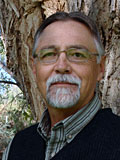Last week’s Moab Sun News article regarding Sierra Club Executive Director Michael Brune’s visit and presentation in Moab was well written and researched. This type of media coverage adds to the process of open dialogue and discussion that play a critical role in democracy, cooperative processes and collaborative decision making.
Unfortunately for citizens of Grand County and other southeastern Utah counties, that process doesn’t appear to be embraced at the Sierra Club. They’ve indicated they are willing to participate in a legislative process proposed by Congressman Rob Bishop to craft a southeastern Utah public lands bill, but they’ve apparently already determined they will not negotiate in regards to a national monument designation, with Mr. Brune assuring the audience that the Greater Canyonlands National Monument would become a reality.
After hearing what Mr. Brune had to say regarding the proposed monument I’ve gone from being initially irritated, to being disappointed, to where I’m at now which is, “why should I be surprised?”
After all, this is the bane of our political system at present. No one will accept the middle ground; no one will budge from their entrenched position. It’s about using power and access to power to force your position on the other side, vis a vis using a second term Democratic President to once again misuse the original intent of the 1906 Antiquities Act.
Is it any wonder westerners are fed up with this system and are demanding ownership and control of their lands all across the west? Does it seem fair that a small minority of Americans with access to power should get to decide what’s best for everyone?
I could have accepted the Sierra Club’s position if their executive director had said they preferred a national monument, but were willing to hear alternative suggestions, engage in dialog and examination, and to actively participate in Congressman Bishop’s land bill process.
I always believed the best decisions in a democratic system come from collective debate and dialogue, as opposed to the non-debatable process involved in an Antiquities Act monument designation. Decisions should be derived after all involved parties come to the table with an openness and willingness to negotiate and work together.
Congressman Bishop’s proposed public lands bill is a good faith effort directed to having that debate and finding reasonable compromise on an array of long standing public land issues in southeastern Utah.
Elected officials from Grand and surrounding counties, representatives from national and local level non-motorized and motorized recreation groups, conservation and wilderness organizations, sportsman’s associations, mineral interests, the Governor’s office and the State of Utah, and members of our congressional staff all have initiated discussions and are in the preliminary stages of trying to find and develop a consensus for land designations in our region that attempts to work for the majority of people.
There’s enough land for everyone to share and it is not, as some would have everyone believe, in imminent danger of destruction. That is an unsubstantiated scare tactic that does not hold up to open and rational scrutiny.
It is a challenging and daunting task to address complex issues and look for long-term solutions for our public lands in southeast Utah. But when one of the stakeholders openly implies a monument deal is already in the works, one which involves no open discussion or debate, the process becomes even more challenging. But those of us who still believe in an open democratic process of debate on issues of such importance will continue to search for solutions and alternatives to a “no debate” national monument designation.
There are those out there who will completely disagree with me and I respect their right to their opinion and beliefs. At the base of their argument I assume they trust only a national commander-in-chief, who they will point out is democratically elected, can do the right thing and save us locals from ourselves.
For me, a native westerner, those who present an unwillingness to engage in honest negotiation only create an atmosphere of disrespect and deceit, not conducive to problem solving.
It’s not the way we westerners were brought up to do business. We’d just as soon folks left us alone, but we are willing to sit down and have a discussion with anyone who has an idea for management of the lands we live in.
We are even occasionally willing to negotiate and we understand the necessity of give and take for negotiations to be successful. But we don’t reckon kindly with outsiders who have a one-sided agenda, who don’t care what we think, or don’t have the good manners to take the time to talk to us about their plans.
It is a challenging and daunting task to address complex issues and look for long-term solutions for our public lands in southeast Utah.”



